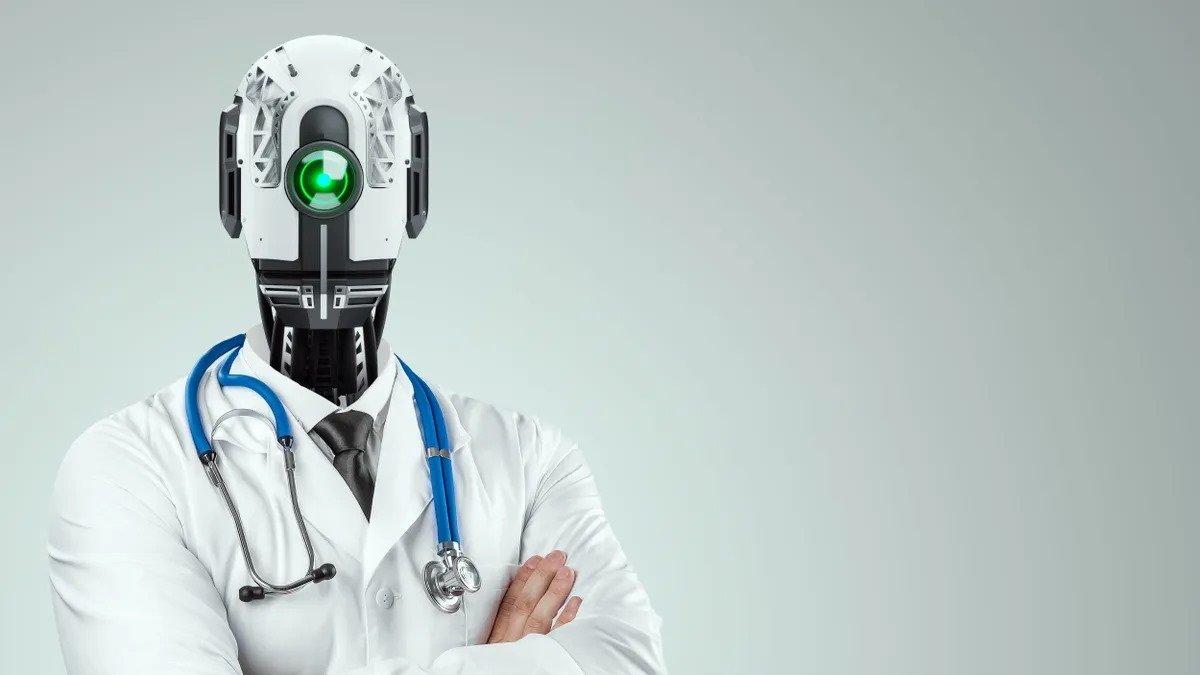A Second Look for Nigerian Families Living in the UK
Last year, headlines across the world caught everyone’s attention with bold claims:
“ChatGPT Rated as Better Than Real Doctors for Empathy and Advice!”
“AI Outshines Doctors in Compassion and Answer Quality!”
In a world where AI tools like ChatGPT are writing books, composing music, and passing tough university exams, it’s not surprising that they’re now stepping into healthcare. But the question remains: can a machine really outdo your doctor when it comes to giving advice — and showing empathy?
For many Nigerians living in the UK, balancing family, career, and health can be overwhelming. Knowing where and how to get trustworthy medical advice is a major concern. So, could AI help ease this burden? Let’s take a second look.
What is AI Already Doing in Healthcare?
AI is no longer science fiction. Right now, it’s helping doctors write medical notes, suggest diagnoses, read x-rays and MRI scans, and monitor real-time health data like heart rate and oxygen levels.
But hearing that AI could show more empathy than real doctors feels shocking — and a little sad. After all, empathy is a very human trait, and Nigerian culture deeply values personal, heartfelt interactions, especially when it comes to health and family.
Can AI Really Deliver Good Medical Answers?
Imagine this:
You send a question about your blood pressure medication to your GP. A day later, you get a call back from a nurse.
Now imagine instead:
You type your question into an app — and within minutes, an AI chatbot sends you a detailed answer.
Researchers tested this idea by collecting nearly 200 real medical questions. Doctors answered them, and so did ChatGPT. Then a panel of medical professionals rated the answers for quality and empathy.
What Did the Study Find?
The results were surprising:
- Quality: ChatGPT’s answers were rated as good or very good nearly 80% of the time, compared to 22% for human doctors.
- Empathy: ChatGPT was rated empathetic or very empathetic 45% of the time, while doctors scored just 4.6%.
Also, ChatGPT’s answers were about four times longer than those from doctors — and longer answers sometimes feel more caring or thorough.
But Wait — Important Limitations!
Before we start trusting AI completely with our health, there are major warnings:
- The study didn’t check if the answers were factually accurate — only how “good” and “empathetic” they seemed.
- AI is known to occasionally “make up” information (a problem called hallucination).
- Longer answers might seem more caring, but that doesn’t mean the advice is correct.
- Evaluators might have guessed which answers were from AI based on length and style.
Bottom Line for Nigerian Families in the UK
AI can definitely be a powerful tool — especially when it works with doctors, not instead of them. Some hospitals are already using AI to draft replies that doctors edit and send.
But for now, it’s too early to rely solely on AI for medical advice. Always involve a qualified healthcare professional when it comes to your health decisions.
And guess what? When we asked ChatGPT if it thinks it gives better advice than real doctors, it said no! 🤖
The future of healthcare will likely be a partnership between humans and machines. But when it comes to something as precious as your health, real human wisdom and care are still irreplaceable. ❤️
🔗 Read more helpful articles for Nigerian families in the UK on Naija UK Connect.
Join Our WhatsApp Channel
Stay updated on the latest UK news, including education, health, job openings, and more for those living in the UK!
Join here: Naija UK Channel
Also, follow us on our social media channels for the latest updates and discussions:
- Twitter: @NaijaUKConnect
- Facebook: Naija UK Connect
- Instagram: @naijaukconnect




